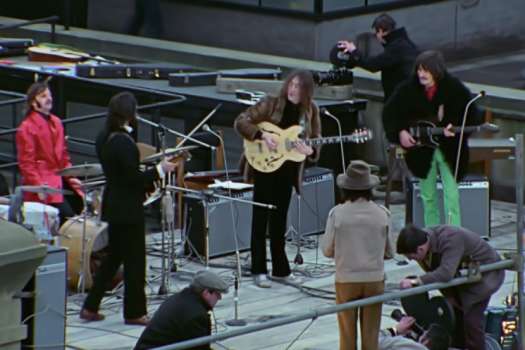"I think it is important that I'm not just in one very small genre that just a few 22-year-old men are listening to." Christian Fennesz had been carving a well-respected niche in the late '90s with a series of releases that mined the noisier bedrock of electronics and essayed the deconstruction of popular themes, like his covers of the Rolling Stones and Beach Boys on the Fennesz Plays seven-inch. With his latest, Black Sea, Fennesz continues to explore beyond the margins of laptop music, garnering acclaim in highbrow mags like The Wire and also in Pitchfork's year-end top 50. "I think what I do is still pop music somehow."
On his 2001 breakthrough Endless Summer, Fennesz unlocked a code that allowed greater access to melody and song structure without abandoning the exploratory aspects of his music. By fragmenting themes into smaller elements than simply verses and chorus he both released trapped energy into less tamed states and gave our ears something deeper to work through. On Black Sea both the free and the slightly civilized swirl together like oil on water. Sombre tones and a muted palette of sounds drawn across wider spaces give the album a colder, wintry feel.
"Maybe halfway through I thought, 'OK, this is going to be a more ambient soundscape,' but if you pick certain tracks like 'Grayscale,' it stands alone as a single track." Fennesz admits drawing some of the inspiration from recent collaborations with experimental pioneers like Keith Rowe and Ryuichi Sakamoto. "It's interesting that you mention those two people; I learned from Sakamoto lately to be really simple sometimes. To play one note and let it be."
Not a final destination, Black Sea is a step along an ongoing path of development that sometimes circles back to visit traditional ideas, including "microphone techniques and good sounding rooms for acoustic instruments... but also in computer music, there's still a lot to find."
On his 2001 breakthrough Endless Summer, Fennesz unlocked a code that allowed greater access to melody and song structure without abandoning the exploratory aspects of his music. By fragmenting themes into smaller elements than simply verses and chorus he both released trapped energy into less tamed states and gave our ears something deeper to work through. On Black Sea both the free and the slightly civilized swirl together like oil on water. Sombre tones and a muted palette of sounds drawn across wider spaces give the album a colder, wintry feel.
"Maybe halfway through I thought, 'OK, this is going to be a more ambient soundscape,' but if you pick certain tracks like 'Grayscale,' it stands alone as a single track." Fennesz admits drawing some of the inspiration from recent collaborations with experimental pioneers like Keith Rowe and Ryuichi Sakamoto. "It's interesting that you mention those two people; I learned from Sakamoto lately to be really simple sometimes. To play one note and let it be."
Not a final destination, Black Sea is a step along an ongoing path of development that sometimes circles back to visit traditional ideas, including "microphone techniques and good sounding rooms for acoustic instruments... but also in computer music, there's still a lot to find."




